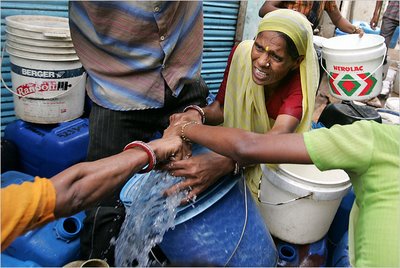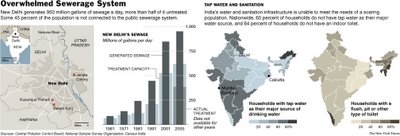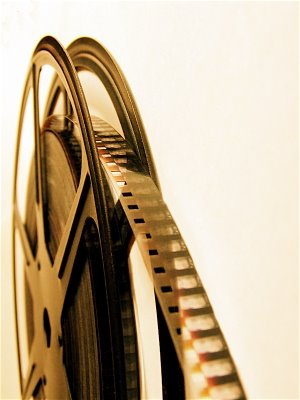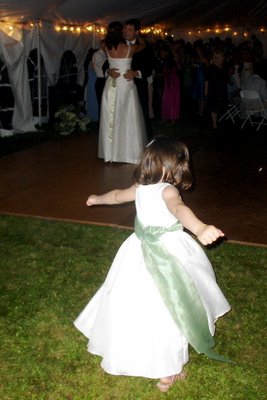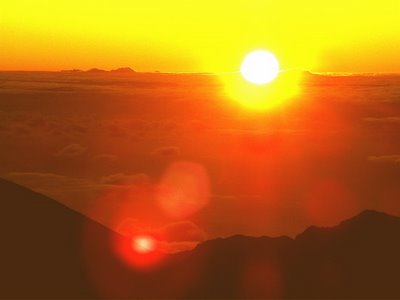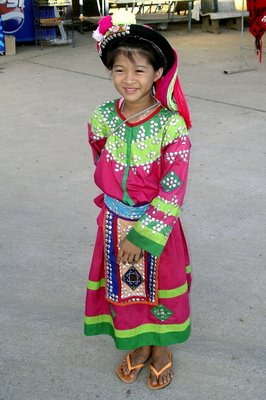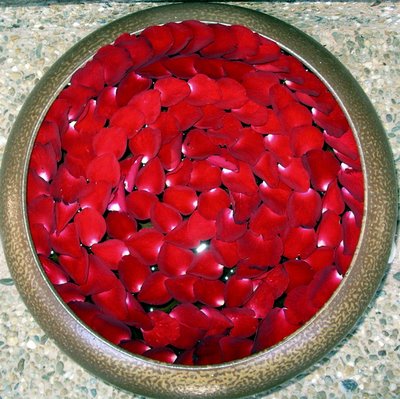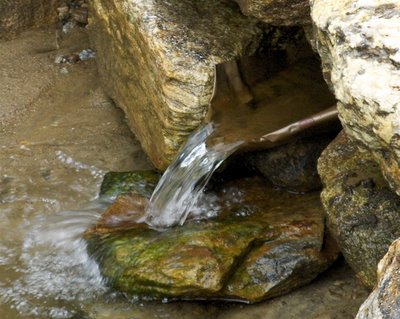
You’ve heard the phrase, “Keeping up with the Joneses”. That spiraling process of acquisition and materialism to keep step with your neighbor's new car, new riding lawnmower, new swimming pool, etc. Perhaps you’ve considered the phrase and the sentiment, and concluded, thankfully, that it is not something you wish to do.
Well, here's a news flash, and something for you to consider. For 90+ percent of people living on this earth — your last name is Jones. That’s right. Even your modest, measured, restrained, middle-class, balanced, comfortable-but-not-affluent lifestyle is precisely what the Joneses have that so many of the rest of the world need to “keep up with”.
And here’s another news flash. It doesn’t scale. The world today does not have the natural resources for everyone to have the same standard of living as you enjoy. And even if it did, it is not the way you want to live.
Hey, so what? I work hard for my money, see? I deserve this lifestyle. Why should I care? Well, if you are a native born American, then one reason is your good fortune. By accident of birth, you live in a place that immediately elevates your lifestyle above the masses of the world. In short, you were lucky. And you should consider that when you believe you have “earned” it. Of course you work hard to earn your money, but probably no harder than billions of others that do not have the opportunity to earn 1/100 of what you make — due not to your efforts or inherent talents — but to your zip code.
So what is your point? Should I feel guilty for all that I have? Guilt would not be the emotion I was going for. You should feel grateful. Grateful beyond belief. And if you really feel that way when you consider all that you now have, it will have two effects: first, it will stop your ego’s tendency to need to keep up with the Joneses around the block; and second, it may cause you to pause and consider that larger inequity. Why does it exist? What are the implications? What things that you don’t like about this world today are in some way connected to that disparity? And I think, if you consider these questions with a reflective, contemplative, introspective attitude, and one that starts on a foundation of gratitude for all that you have been given, it will be an eye-opening experience.
So where does this road lead? Only here: to a recognition that you have enough — more than enough. Just that realization can change your life. What are you working for now? What are you worrying about now? If there is a monetary component, then you just solved your problem. You already have enough.
Now wait just a minute. Yes, I can believe that maybe after I get my dishwasher fixed, and we get an air conditioner (did you see how hot it was last week?), and we replace our old jalopy, and my second kid gets through college, and we take that vacation we’ve been planning — maybe then well have “enough” and consider your point. Perhaps, like many others, you believe if you just earned 20% more money, you could eliminate your financial worries.
Another news flash: everyone believes that, and it doesn’t matter what their income level is. And even if you increase your income BY 20%, your “wants and needs” will go up by the same amount, and you are right back where you started. Just roll the calendar back 10 years and ask yourself how you felt about the money you earned then. Now consider the extra money you earn now. Where does it all go? Has it eliminated your wants and needs? Or has it just changed them into a different set — the same ones that the Joneses next door needed too.
You know where this comes from. It is the only reason Madison Avenue exists. To create in your mind a want and a need for that new “stuff”.
Hey, now hold on just a minute. Maybe I do want that stuff. So what? It’s my money. You’re not taking it away from me. So if I want to buy more stuff, what’s it to you, anyway?Don’t worry, I’m not advocating for a massive redistribution of wealth to help out the poor. But I am advocating for you as an individual to consider the consequences. How do you like the terrorism today? Don’t think that is tied into our Western lifestyle? Tied into the ‘haves’ and ‘have nots’? OK, perhaps you’ll find more agreement in what our lifestyle does to the environment. Are you satisfied with our stewardship of the planet? Will you be when China or India works to raise its standard of living to a commensurate level? Where do you think wars come from? Competition over resources. Not ideology. In the end, it is about who controls the resources — and in some cases, those resources are human.
So what do you expect me to do? One person in a sea of more than six billion. Just leave me alone, let me be comfortable. Yes, let me want the next cool gadget, and I’ll be happy. Ah, but what about the children. And their children. Everyone of your ancestors can say they helped to make the world a better place for you — gave you a better lifestyle. It is, in fact, why we live. To have children, so that they can have children. It is called evolution, and it is the ultimate journey we are on. And so, we owe it to our children to make sure that the planet is here for them to decide how to make it better.
Yeah, so what? You still didn’t say what I can do about it. Well, here is where your faith is needed. No, not your belief in your God. Your faith in yourself. You need to decide just what you should do. Consume less, reduce the excess you already have. Simplify, simplify, simplify. Spend your new-found, reduced-stress time on things that matter. Spend more time with your family. Show them what choices they can make, and how those can make a difference. Spend time with yourself, and continue to reflect, contemplate, and perhaps meditate on just what is important, on overcoming the ego, on respecting all life, on beauty, on peace, on gratitude.
I believe there is tremendous power within each of us. And we use it however our mind thinks is best. But our mind has been tricked by our ego into what it thinks is best; in short, what is best for
me. But that is not what is really best, because it does not scale. Indeed, it is the source of all conflict. If you seriously consider the world around you, you will realize that you are not a separate being — cut off from everything else. You cannot use everything else to better your own situation, or in the end you will damage yourself just as you damage the world around you. You are a part of the world. You are intimately connected to everything around you. So what ultimately is best for you, is what is best for those around you. Once you realize this — once you gain control over your ego (and your mind), you can use that wisdom to make new choices.
There is so much more to say about these new choices. How they will make you feel. But that should be left for another time. In short, they can give you inner peace — a foundation so solid that you will not be shaken by the inevitable storm. They can give you inner bliss — letting you see the beauty in everything and everyone around you. And then you will know unconditional love — what it feels like to offer it, and to receive it. Once you have tasted just a sampling of these things, you will no longer wish to follow the Joneses. But instead to help them see what you have seen. And from there, it will spread.
You can see another post that asks the question:
Do you have enough?




